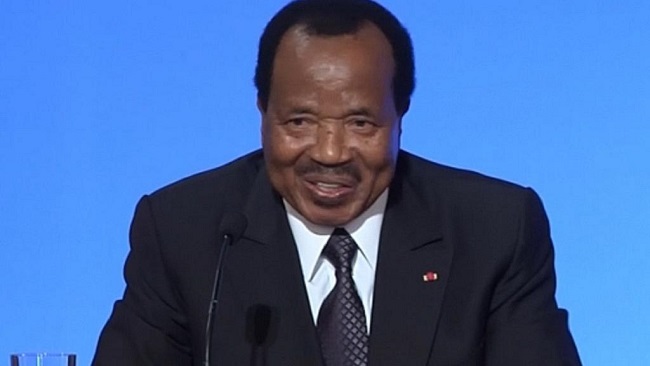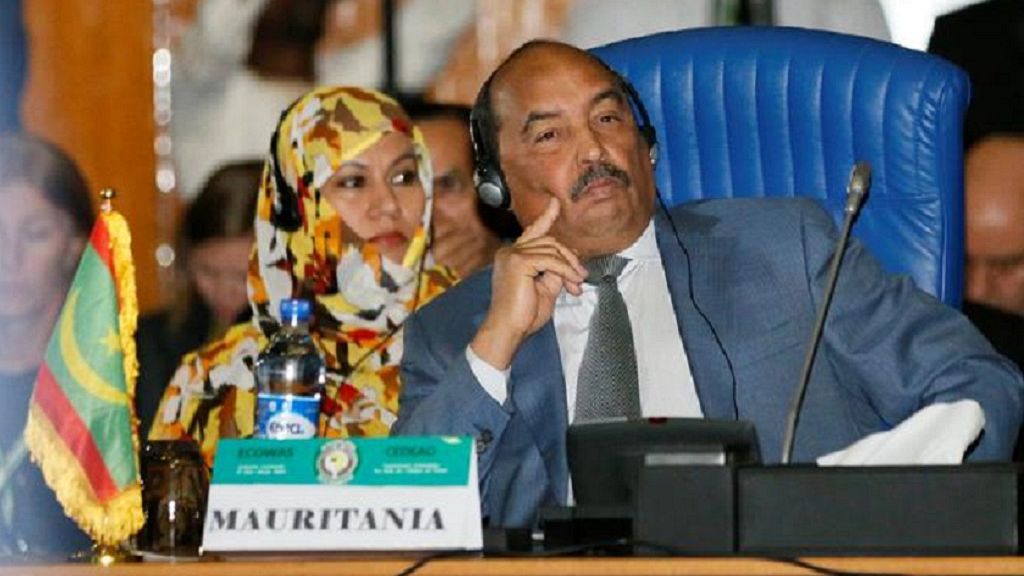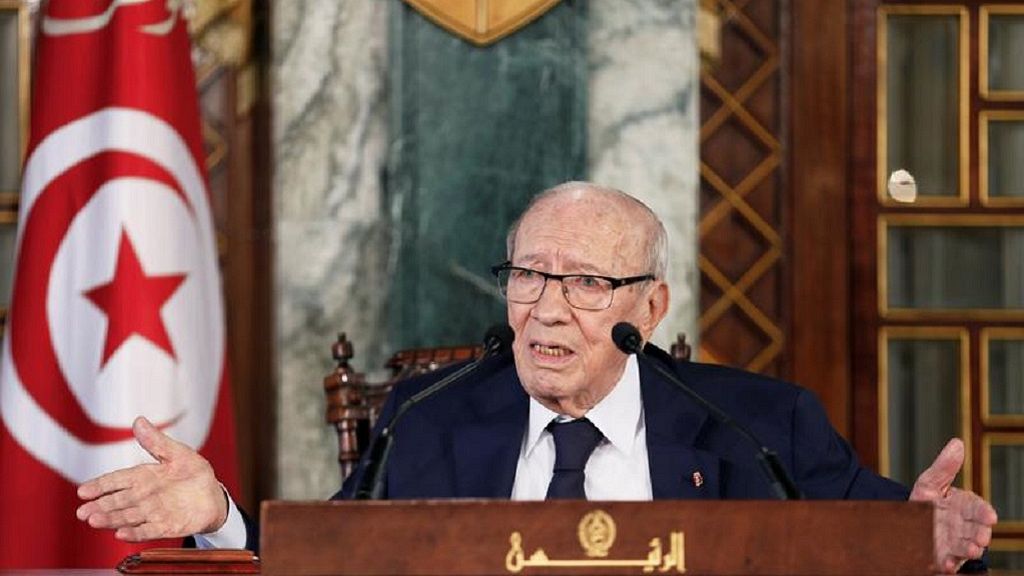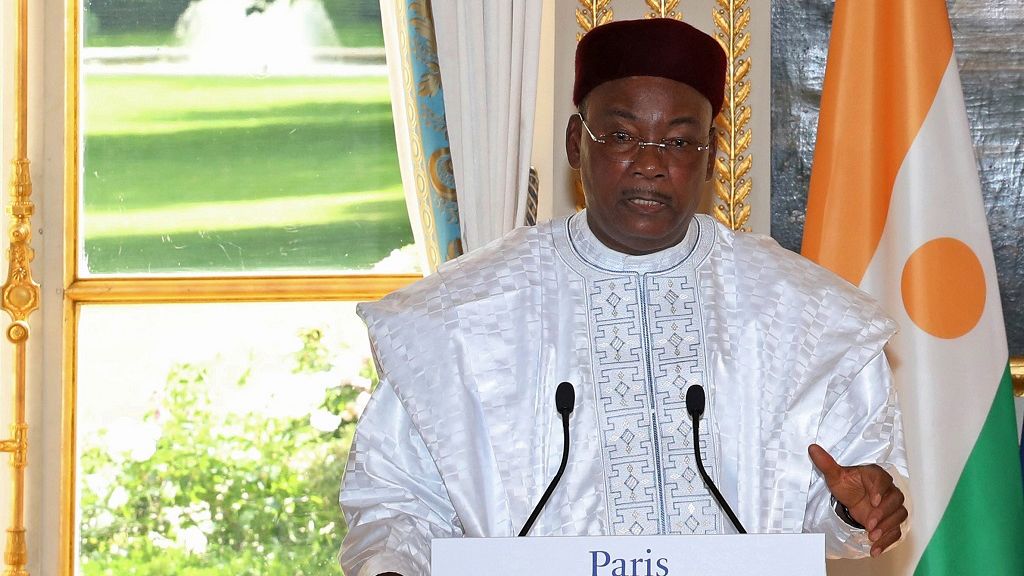9, October 2019
Biya opens consulate in Equatorial Guinea to prevent the construction of a Berlin Wall 0
Cameroon President Paul Biya on Monday signed a decree creating a consulate in Equatorial Guinea.
The new consulate will be located in the city of Mongomo in the continental part of Equatorial Guinea.
According to the decree, the consulate will cover Kie-Ntem, Wele-Nzas and Centre-South Provinces of the country.
The consulate is expected to improve relations between both countries along the border, according to officials of Cameroon Ministry of External Relations.
The over 180 km border between Cameroon and Equatorial Guinea is often a source of conflict.
Source: Xinhuanet

































11, October 2019
Hatred for Igbos made Southern Cameroons to secede from Nigeria in 1961 0
The so-called Igbo “scare” in the British Cameroons between 1945 and 1961 allegedly led the southern part of the British mandate to opt to leave the federation of Nigeria on the 11th of February 1961.
The fear of Igbo domination in all the sectors of social and political life in the former German and British territory was given as a major factor. Kumba, Mamfe, Bamenda, Tiko and Victoria had a large number of NdiIgbo who dominated the economy. This led to local resentments, which politicians like Dr E.M.L.Endeley, Chief Manga Williams and J.N.Foncha exploited for selfish interests.
Stereotyping the Igbo did not change the natural disposition of the latter to hard work, aggressiveness, showiness and ethnic pride—all of which may be interpreted as the Igbo hubris, which in literary parlance is a tragic flaw.
Yet local resentment did not stop Igbo migration to Cameroons. The Igbo helped to build the Nigerian-Cameroonian Highway.
They became petty and full time traders, engaged in farming, sometimes dispossessing original land owners of their lands through legitimate purchases, and held sway in the plantations.
Because of their education, Ndigbo became dominant in government services and commerce, especially with the departure of the Germans in 1939. Menial jobs were the reserve of the less educated Cameroonians.
There were monopolies like the United African Company and John Holt, all owned by the British. Yet the Igbo, not the British, were accused of marginalizing the Cameroonians.
The Igbo, they cried out, controlled the local administration and made it impossible for locals to occupy high government posts. They had a point but the Igbo did not ask them to be laid back and not to go to school.
A British Resident administrative officer in Cameroon also accused the Igbo of injustice and, in his own words, as behaving as” if they were a law unto themselves and not wont to recognize ‘local authority”(See Resident, Cameroon Province, Buea, to Secretary, Eastern Provinces, Enugu, 29 June, 1948).
Such reports did not reduce tension; rather the emerging Cameroonian business and political elite fuelled it to advance their political agitations and encouraged many other unproven allegations against the Igbo.
Unsubstantiated Igbo misdemeanor, too numerous to bother the reader with here, occupied the social and political space in the late 1940 Southern Cameroons.
The Buea Native Authority demanded the expulsion of the Igbo in 1948 accusing them of dominating the plantations, especially. Earlier, the Bakweri Native Authority had specifically issued the following orders:
1. Nobody is allowed to sell his or her house to an Ibo; neither must anybody give his or her house for rentage to an Ibo.
2. No farmland must be sold to an Ibo or rented to an Ibo
3. Nobody must allow an Ibo to enter any native farm or forest for purpose of finding sticks for building or for any other purpose.
4. House or farm already sold to any Ibo man shall be purchased by native Authority who will afterwards resell same to some suitable person.
5. Nobody shall trade with Ibos for anything of value or not.
6. All landlords must ask their Igbo tenants to quit before 15 March 1948.
7. No Cameroon woman is allowed to communicate with the Igbos in any form
8. Anybody disobeying those rules shall be liable to a fine of £5 or five months imprisonment.
9. Any Ibo native disobeying Rule (3) above will be liable to prosecuting in the Native Court.
10. All Ibo Government officials are exempted from Rule (5) above.
(Cf: Bakweri, N.A. Buea to Senior D.O, Victoria, 21 Feb.1948.).
It is believed that Chief Manga Williams and Dr Endeley, two parliamentarians in the Eastern House of Assembly, were behind these anti Igbo laws.
We have seen similar sentiments directed against the Igbo in Nigeria, in colonial and postcolonial times, since NdiIgbo began their endless adventure outside Igbo hearth and heartland.
It is also to say that quit notices against Ndibanyi did not start today. Hate speech and hate literature did not start with Nigerians.
As we write English speaking Southern Cameroon is directing its angst against Yaoundé and the minders of power in their capital city. The same Cameroonians are also terrorizing Bakasians.
They were in hearty collaboration with Nigerians during the civil war and were rewarded with a good chunk of Biafra land and its mineral deposits.
The aggravations Ndibanyi receive from our neighbours and hosts require a different and more robust approach than what is available now.
It requires a vision with a homeland ideology, to show we have a home that is prosperous and could be second to none in the world. Is history a farce? Is the Cameroonian narrative a matter of marrying two husbands and knowing which is better?
After demonizing the Igbo and seceding from Nigeria to join their supposed kit and kin in French ruled Cameroons, in 1960, the battle cry has changed.
South Cameroons is clamouring for another secession. A case of the other perceived as the evil? The Devil now is not the Igbo, but Biya and his fellow Fulani.
Of course there are many possible readings of this story plot.
Contextually, it is all about the quest for self-apprehension. I am however, interested as a social historian, in what our people can learn from our sublime encounters with history whose outcome need not be quixotic or Sisyphean.
A laundry list of anti Igbo prescriptions such as the above should provoke deep reflection on our part, especially in the context of our recent experiences from our country men in the northern and western parts of the country which reveal a deep rooted resentment against Ndibanyi.
Certainly, there is an Igbo complex just as there is the Igbo Question in Nigeria. Both need resolution. Said the Hon Nnamdi Azikiwe in 1949 while addressing NdiIgbo in Aba:
It would appear that God has specifically created the Igbo people to suffer persecution and bear victimization because of their resolve to live. Since suffering is the label of our tribe we can afford to be sacrificed for the ultimate redemption of the children of Africa”.
Is Zik’s position anachronistic or is it messianic? Can we deny our Igboness? Does being cosmopolitan mean abandoning our homeland? There is a man in the Igbo, which must be saved for the sake of humanism.
Causal factors have been important in determining Igbo journey in the pluriverse and that journey has been dramatic.
Can we, NdiIgbo, control the natural instincts and impulses, which drive our relationship with our environments and social political spaces? Should there be a change in our foundational approaches and rethink strategies in our efforts at self and group fulfillment, a rethink of our approaches to constitutive freedoms?
I am calling for a consequential reasoning and re-examination or even prioritization of our freedom rights, especially when our libertarian rights seem and are violated?
I am also calling on Attorney Chris Aniedobe and Dr Okenwa Nwosu to do a distillation of all the currents of ideas through our contributions on this forum and publish it timeously—a humongous task indeed— but not an impossible one.
It would be a worthy and ageless contribution to Igbo phenomenology and scholarship, subjects of our direct experiences—one from which future generations will gain a lot—a tribute to all who believe in the relevance of communal enquiry, valent episteme and solid good ideas. I am just thinking aloud.
Source: The News Nigeria